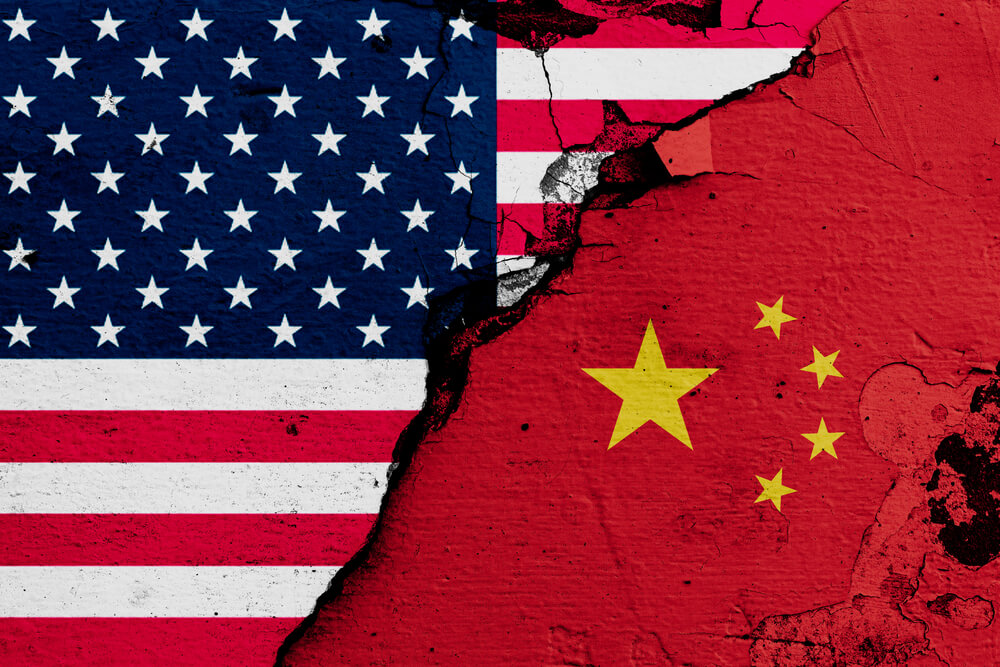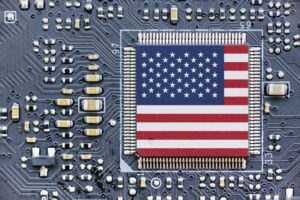A new Cold War is upon us. Unlike the prior one between the democratic West and the Soviet Union, this time the U.S. and its allies do not have the advantage of superior technology with which to counter its adversary’s advantages.
Beijing learned a lesson from watching Moscow’s defeat at the end of the last century as the result of superior Western technological and economic power. Most importantly, it learned that it had to match or exceed the West in advanced technologies in order to win the approaching political, economic and military struggle.
China is investing heavily in an array of advanced technologies in an attempt to be the dominant power of the 21st century. In order to prevail in this new Cold War, the U.S. must ensure that its high-tech companies are able to compete successfully against their Chinese rivals. Unless the U.S. responds to the China threat by taking steps to maintain its advantage in high tech, this country and the free world could face defeat in the new Cold War.
The signs of a Cold War between the democratic world and China are becoming more numerous and increasingly clear. China is building up a massive military designed to counter that of the U.S. and its allies. It is encroaching on the air and sea spaces of neighbors—most significantly, those of Taiwan.
Unlike the old Soviet Union, Beijing understands that if it were to build a military capable of taking on the U.S. and its allies, China must simultaneously be an economic and technological powerhouse. To that end, it is conducting what can only be described as economic warfare against the rest of the world, especially the United States. This involves flouting the rules of the current economic order, conducting massive economic espionage and seeking to ensnare countries in the Belt and Road Initiative.
Economic imperialism from China
Agathe Demarais, an eminent economist at the European Council on Foreign Relations, characterized China’s behavior as modern-day economic imperialism:
“Nowadays, the bipartisan view in Washington’s corridors of power is that China is rolling out a revamped version of economic imperialism, just like Great Britain in the 19th century or Japan after World War II. To retain its role as the world’s sole superpower, Washington believes that it has to stop Beijing in its tracks. Some Americans go as far as seeing the U.S.-China clash as a generational one, on a par with conflicts against the former Soviet Union or Islamist terror. The reality may be less dramatic. The conflict between the United States and China is one for economic dominance between an incumbent economic superpower and its rising challenger.”
Domination of advanced technologies is a key part of Chinese strategy, which will enable Beijing’s drive for economic and military dominance. For that reason, China has embarked on a comprehensive plan to invest in critical areas with both economic and military value. These include artificial intelligence (AI), machine learning, quantum technologies for computing and sensing, microelectronics, 5G/6G communications, extended reality cybersecurity and the Internet of Things.
Beijing has designated a series of technology national champions, companies at the forefront of technology development. These firms are provided with government support, financing and the fruits of Beijing’s vast espionage efforts.
If China wins the tech competition, it could win the new Cold War, and the U.S. could find itself like Russia after the collapse of the USSR. This is particularly the case with respect to the competition in AI, which has incalculable implications for U.S. economic and national security.
What is at stake in the new Cold War
According to a recent report by the Special Competitive Studies Project, entitled Mid-Decade Challenges to National Competitiveness, if China wins the competition in high tech, especially in AI, the results would be nothing short of catastrophic for the United States. The major consequences could include the following:
- China dominates the economy of the future and captures trillions of dollars’ worth of value generated by the next wave of technologies.
- China uses its techno-economic advantage for political leverage; nations — including U.S. allies — reliant on China’s tech swing into the PRC’s political orbit.
- Authoritarian regimes sell the case that they are masters of the modern world.
- An open internet is compromised.
- The U.S. military’s technological edge erodes.
- China cuts off the supply of microelectronics and other critical technology inputs.
Even if China does not completely dominate the sphere of advanced technology, its efforts to become the preeminent power in AI alone could confer enormous political, economic and even psychological advantages.
For instance, the problem of built-in bias in search engines and AI agents has garnered significant public attention recently. Imagine the damage that could be done to our public and private lives if this country were reliant on Chinese companies, which work hand in glove with the government, for search services and AI support.
China’s control of TikTok already is a major national security issue because of the data it collects on tens of millions of Americans, as well as its potential to manipulate information in ways that would benefit the Chinese government and Chinese Communist Party (CCP). But consider the threat to U.S national security, the economy and society if the world were dependent on AI applications inculcated with the values of the CCP.
U.S. firms can help win the competition
Only by having strong U.S. tech companies able to produce apps driven by Western standards and validated by trusted entities can we hope to protect ourselves and the rest of the democratic world.
This country’s advantage in the tech competition with China rests to a significant degree with a handful of major corporations such as Amazon, Microsoft, Alphabet and Meta, with the financial strength, technical talent and robust workforce capable of besting their Chinese competitors. These firms have not only conducted hundreds of billions of dollars of economic activity and supported millions of jobs, but they have also created an entire high-tech ecosystem. They have been the source of seed capital for thousands of new startups and have been central to spurring the AI revolution in the United States and globally.
If the U.S. is to win the competition in advanced technologies with China, it will be because of these leading American firms. These companies are not just businesses, they are invaluable national assets. Current efforts to impose on them draconian antitrust shackles need to be reconsidered in light of the role these firms will play in the future economic, military and political security of our country.
Dr. Goure is a non-resident fellow with the Lexington Institute, a nonprofit public-policy research organization in Arlington, Virginia. He has held senior positions in both the private sector and the U.S. government, including as a member of the 2001 Department of Defense transition team. Follow him on Twitter at @dgoure and the Lexington Institute @LexNextDC. Read his full bio here.







